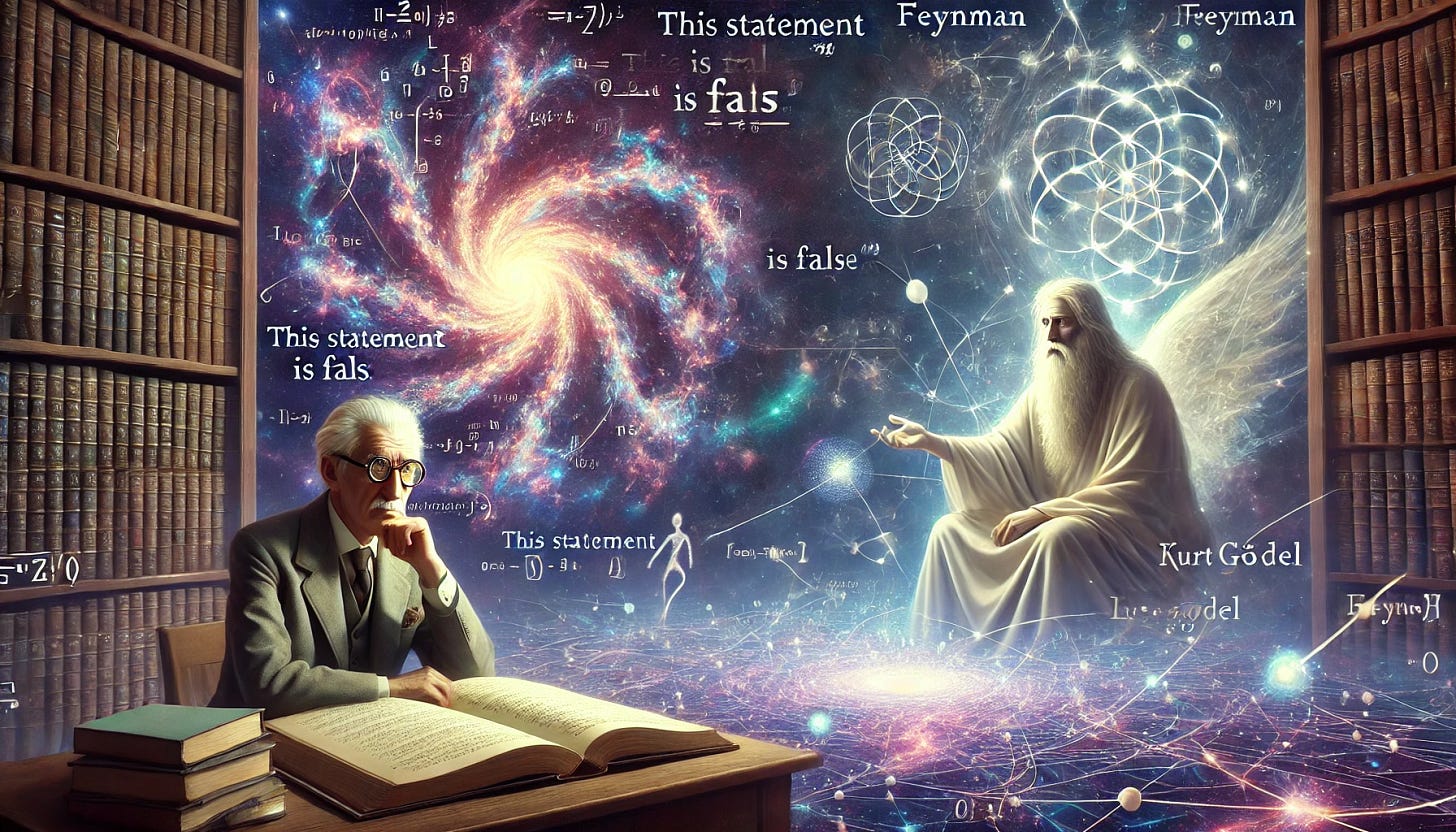God and Gödel
People used to believe that every statement in mathematics was either true or false. But Kurt Gödel1 proved that it was possible to make statements that could not be shown to be true or false. It wasn’t a matter of not having found the proof yet—although there could be some true or false statements for which we have not found the proof. It was impossible to prove them either way.
“Correct,” said Kurt Gödel2. “That’s my First Incompleteness Theorem.”
“Actually,” God said, “it’s My First Incompleteness theorem. But I don’t mind you saying it’s yours. I give all My theorems to everyone.”
“True,” said Kurt Gödel3.
“But,” God continued, “it’s also possible to make statements which—if true—must be false, and if false—must be true.”
“How?” asked a reader.
“Simple,” said God. “Take the statement ‘This statement is false.’
“If that statement is true, it must be what it says it is: false.
“But if it’s false, it must be the opposite of what it says: true.”
“Whoa!” said a reader.
“Or try this one,” God said. "‘This statement can’t be proved.’” If you can prove it’s true, then what it says it’s false. So, you will have proved what’s false it true.
“Things get weirder,” God says. “Quantum physics lets a particle be in two places at once. And when particles move from place to place, they follow every possible path.”
“And even every impossible path,” says Richard Feynman.
“So “God exists” might be true but impossible to prove true,” says God, “or might be false, but impossible to prove false.
“See what I did there?” God asks.
Without the umlaut, "Godel" is "God + El," essentially “God-God.” Somewhere along the way, an overzealous German typesetter decided that "Godel" needed more sophistication—hence the umlaut. Little did they know in celestial legalese, the umlaut signifies divine footnotes, meaning Gödel’s true status is "See Appendix A: Incompleteness of Omnipotence.”
Without the umlaut, "Godel" is still "God + El," essentially “God-God.” Somewhere along the way, an overzealous German typesetter decided that "Godel" needed more sophistication—hence the umlaut. Little did they know in celestial legalese, the umlaut signifies divine footnotes, meaning Gödel’s true status is "See Appendix A: Incompleteness of Omnipotence.”
Without the umlaut, "Godel" continues to be"God + El," essentially “God-God.” Somewhere along the way, an overzealous German typesetter decided that "Godel" needed more sophistication—hence the umlaut. Little did they know in celestial legalese, the umlaut signifies divine footnotes, meaning Gödel’s true status is "See Appendix A: Incompleteness of Omnipotence.”

